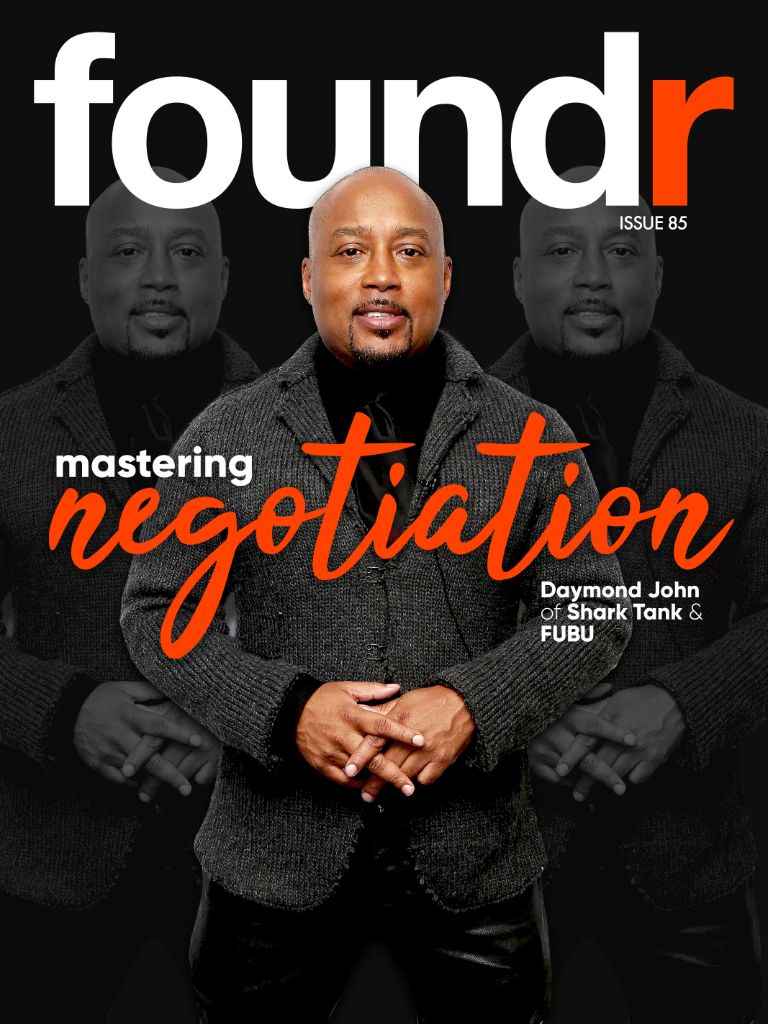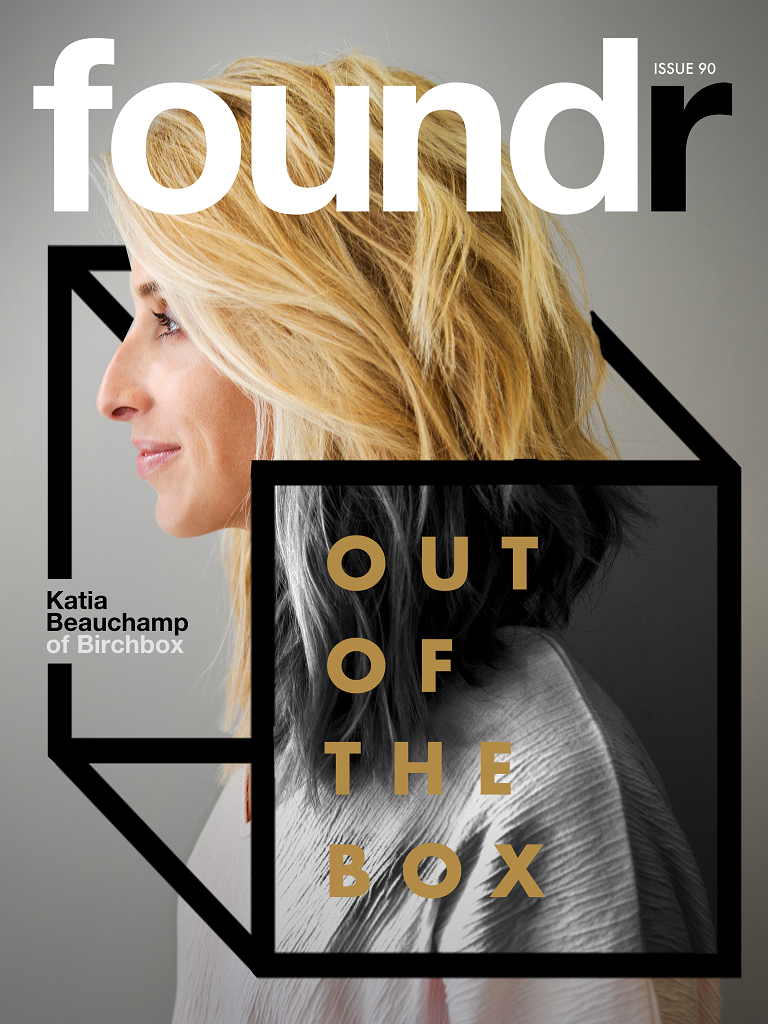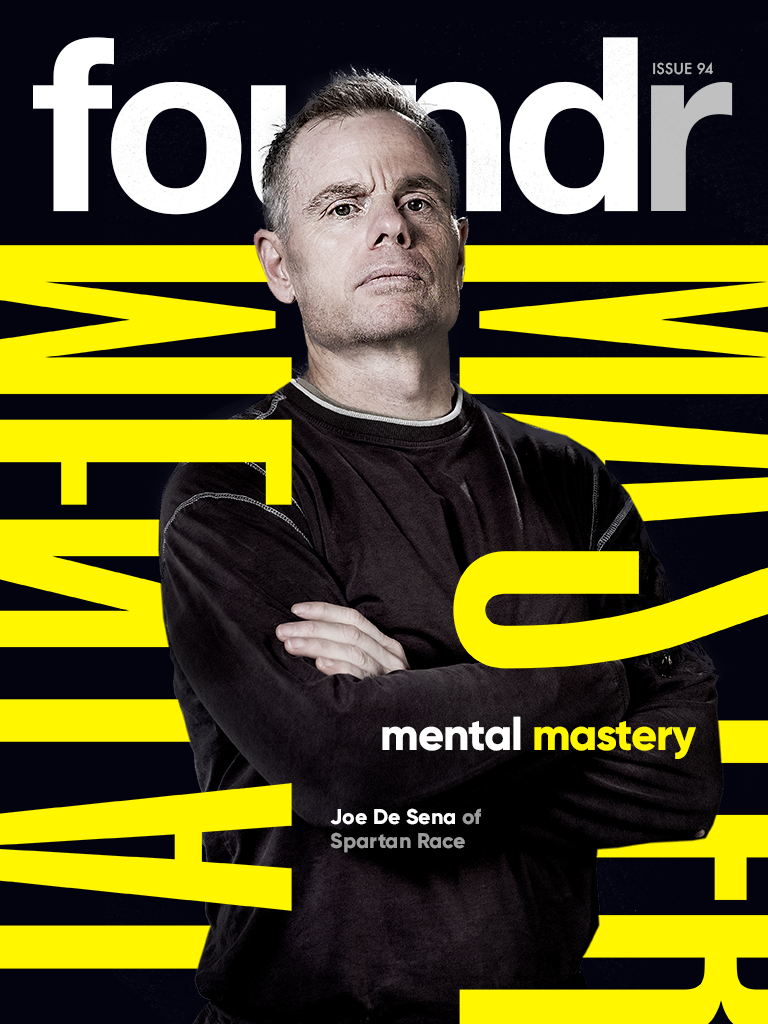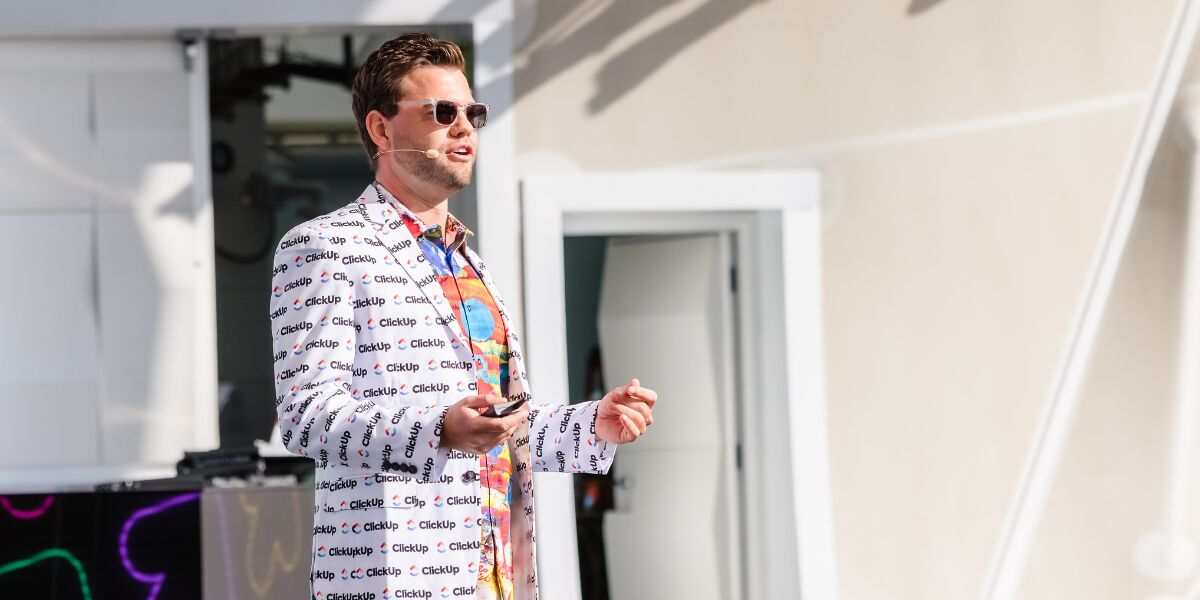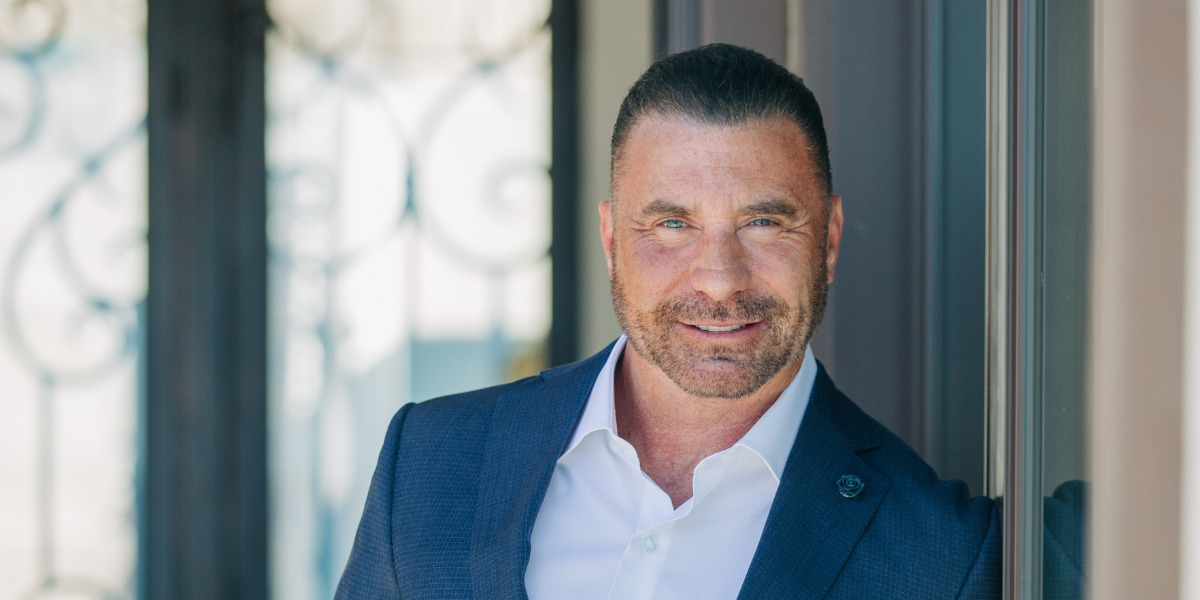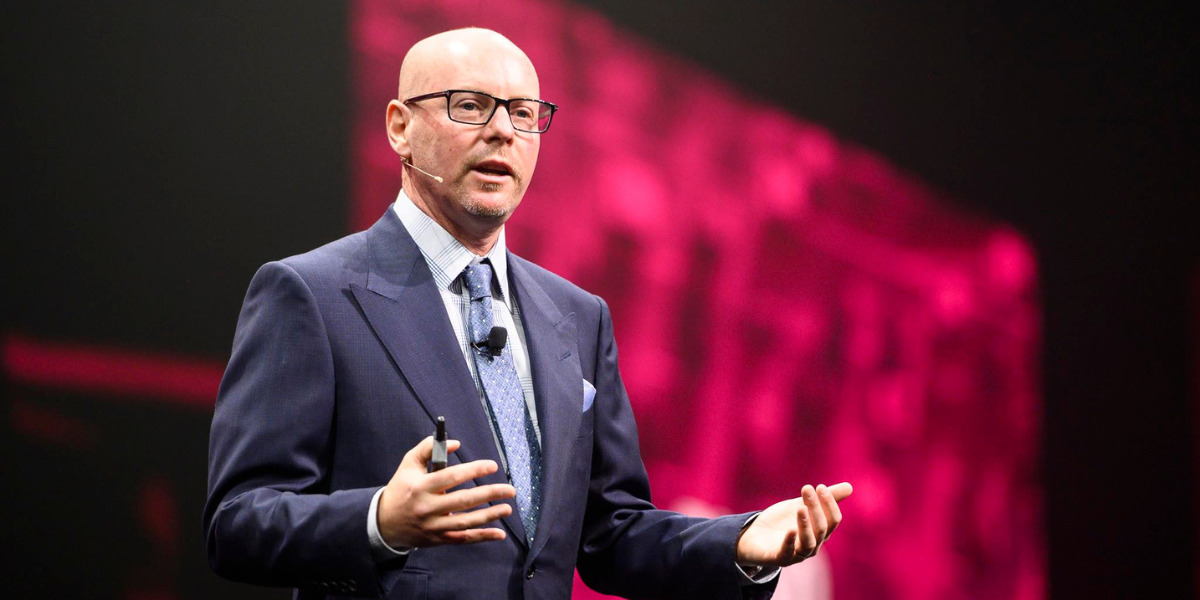Get balloons ready, because Foundr Magazine is about to publish our 100th Issue!
What began as a one-person digital magazine eight years ago has turned into a global publication with 20+ courses, 40+ employees in 5 continents, and a community of millions of entrepreneurs from all walks of life and from every corner of the industry.
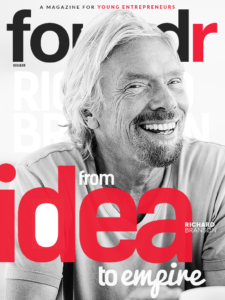
Yes, THAT Sir Richard Branson.
As a celebration of our 100th issue and the infinite library of advice and lessons from our hero entrepreneurs themselves, we’ve decided to share some of our favorite moments from our interviews over the years.
The Best Entrepreneur Advice and Insights From Over 100 Magazine Issues:
Issue 24: Marie Forleo, Founder of Marie Forleo International
Our 24th issue of Foundr Magazine featured an entrepreneur like no other. Not only does Marie Forleo run an 8-figure business and have a readership of more than 275,000 readers in 193 countries worldwide, but Oprah called her a thought leader for the next generation.
And Marie’s secret to building an 8-figure business? “Build a business with heart!”
How to Build an 8-Figure Business with Heart
Lead With Your Heart
“Pick one channel, one way to get your message out that you can become really good and consistent at, and then let yourself build from there,” Forleo says. “Figure out what’s your perfect fit…decide what can be a good consistent schedule for you to put out high-quality content that really matters to people and is true to your voice.”
Give Yourself Time Off
Forleo happily admits how hard she worked and how hard she pushed herself, but warns that burnout can completely take you down. “Make sure to carve out quality time, even if it’s just a little for your family, friends, and health.”
 Issue 68: Danielle Weisberg & Carly Zakin, Co-founders of theSkimm
Issue 68: Danielle Weisberg & Carly Zakin, Co-founders of theSkimm
In our 68th issue, theSkimm co-founders Danielle Weisberg and Carly Zakin discussed how entrepreneurship can be a lonely road and how you need all the community support you can get.
Not only have these close friends supported each other through almost a decade of business, they’ve also “succeeded in surrounding themselves with a community that ardently believes in the value of what they do” through their content.
theSkimm Co-founders’ Tips for Growing a Content-Based Business
Build a Community
Weisberg and Zakin are huge advocates for authentic community building. When it comes to making a decision between money and an audience, they say that monetization can come later, but an enthusiastic, loyal audience is irreplaceable.
Grow With Your Audience
“We always say, ‘You can age into theSkimm, but you can’t age out,’” Zakin says. “What we’ve seen is that we’re a must-read or must-have brand for a younger audience, but we also have been able to start to expand with our audience and help them go through the next phases of their life.”
Issue 70: David Heinemeier Hansson and Jason Fried, Founders of Basecamp
For our 70th issue, we spoke with the founders of Basecamp, David Heinemeier Hansson and Jason Fried, to find out how they’re achieving the holy grail of office culture: a healthy work-life balance.
The Basecamp duo offer a new perspective on the modern-day entrepreneurial hustle and the importance of fostering a “no-overworking” office culture. “[We believe] work should be a pleasurable experience,” Hansson says. “Success to us means we set our own agenda, control our own destiny, and have a sense of independence.”
Basecamp’s Rules for a Healthy Work-Life Balance
Have Fewer Meetings
Outside of social communication and quick check-ins, keeping in touch can be a huge distraction for employees. “The idea of chat as a primary means of communication inside of a company, I believe it to be a very toxic idea,” Fried says. “I think that, right now, chat is why work is more hectic for more people”.
Watch Out for Overwork
Basecamp has enforced a 6-week project budget to avoid overwork. This time limit forces employees to make decisions about workflows and weigh tradeoffs. “We don’t do overworking,” Fried says. “We’d rather reward someone who works normal hours and gets a lot done…someone who protects and manages their time”.
Issue 80: Suzy Batiz, Founder of Poo-Pourri
If there’s one thing we love to say, it’s this: the entrepreneurial journey is incredibly challenging but that doesn’t mean it shouldn’t be fun. Just ask our 80th-issue featured guest Suzy Batiz, who knows a thing or two about making a splash.
Batiz went bankrupt twice before launching the now multimillion-dollar Poo-Pourri brand, and has this reminder for our readers: “What’s worse than losing everything is losing everything and realizing you didn’t even have fun to begin with.”
How To Stand Out From The Crowd, The Poo~Pourri Way
Stop Worrying about What Other People Are Doing
Batiz learned this the hard way. After finding out that a competitor was launching a new product, she panicked. In a competitive fit, Poo-Pourri rushed production and ended up with 500,000 faulty units, losing millions of dollars and three-quarters of a year in creative energy.
“It was a really good lesson for us to keep our blinders on and stop worrying about what other people are doing,” Batiz says. “Sometimes the best lessons cost us a lot of money or time or energy. The key is to learn.”
Get the Word Out
“When you have an idea that is great, people tell other people about it,” she says. “I see a lot of people in founder stages stop at a good idea. And if you just have a good idea, it’s like pushing a train uphill. But when you have a great idea, people will stand on the rooftops and shout to other people about it.”
Issue 83: Alexa von Tobel: Founder and CEO of LearnVest
In our 83rd issue, Alexa von Tobel gives this piece of advice for budding entrepreneurs: “If you’re living for tomorrow, you can’t think long term.”
As the founder of digital financial planning business LearnVest and manager of the $200 million investment firm Inspired Capital, von Tobel knows how to avoid running into financial struggle—and that’s why we chose her as the instructor of our Finance For Founders course.
Alexa von Tobel’s Tips for Building a Successful Business
Word-of-Mouth Marketing
Sometimes the best marketing is word-of-mouth. “Word-of-mouth marketing is free,” she says, and often “more effective than traditional marketing for startups”.
Embrace the Learning Process
Always be open to criticism and make sure you learn from your mistakes. “I think the best founders are learners,” she says. “They are comfortable with negative feedback. They want to make it better, and they are constantly just listening and learning obsessively.”
Issue 85: Daymond John, CEO of FUBU
In 2020, we partnered with Daymond John to create Deal Flow, a 100% free and actionable mini-course where he teaches you his 3 must-have skills to transform any situation, close any deal, and achieve any outcome you desire (even in today’s changing economy).
This ability to put together winning deals is something that John has mastered in his business empire and also understands extraordinarily well from reviewing 1000’s of pitches and business deals on ABC’s Shark Tank every week.
In our 85th issue, John gave us a sneak peak at his fail-proof approach to negotiating business deals with ease:
Daymond John’s 3 Stages of Negotiation
Before the Negotiation
John says you need to identify the other party’s motivations and make a list of questions you want to ask. Make sure to prepare clear answers to every question you think they’ll ask you, and “identify your deal breakers”.
During the Negotiation
“Look the other party in the eye, give a firm handshake, speak in complete sentences, let the other party speak in complete sentences, and mind your body language and facial expressions,” says John.
After the Negotiation
Make sure to nurture the relationship to keep the door open for opportunities and future dialogue down the road. “This includes landing on a deal that benefits everyone, not just you.”
Issue 88: HubSpot Co-Founder Dharmesh Shah
In light of the COVID-19 pandemic, more and more companies adopted a decentralized structure to allow team members to work more safely from their homes.
To further understand how to best navigate the new normal workspace, our cover feature for Issue 88 was an in-depth interview with Dharmesh Shah of HubSpot. He offers these words of wisdom for businesses operating with a decentralized structure: it’s all about culture.
Shah’s Guide to a Consistent Culture across a Decentralized Team
Write it Out
As Shah puts it, an abrupt global shift to remote work revealed that most companies “cannot communicate culture through osmosis.” Instead, companies should write down the most important tenets of their culture code, just as he did with HubSpot’s infamous 128-slide Culture Code. Consider what matters most when it comes to your company values and write it out for your team.
Repetition, Repetition, Repetition
Repeat the core message of your culture code over and over again to your team. Shah himself repeats their code at every single company-wide meeting.
“This part is often painful for founders, myself included. I’ll say the same things over and over again to the point where I can’t believe I’m going to say it again. As you’re growing, you forget the fact that at any given point in time, most people at the company have never heard you say those words.”
Issue 90: Katia Beauchamp, Co-Founder and CEO of Birchbox
In our 90th issue, Beauchamp says she believes the most important part of business is creating a trustworthy brand, because it may be your saving grace if you run into trouble.
In the early days of Birchbox, Beauchamp recalls when she accidentally mailed out tens of thousands of expired products and had to do major damage control including refunding every customer, costing her thousands. Thanks to the trusting relationship that Beauchamp had crafted between brand and customer, most customers were thankful for her apology and Birchbox avoided a huge PR disaster.
Katia Beauchamp’s Secret Recipe For Creating A Trustworthy Brand
Face the Music, and Own Up to Your Mistakes
If you make a mistake or fail to meet expectations, Beauchamp says that the best thing you can do for your brand is to take ownership and admit fault. “Mistakes are the biggest moments and what you do with them, how you face them, and how you take responsibility is a really big part of it,” says Beauchamp.
Inspire Your Customers to Want You to Win
Beauchamp leaves us with some wise wisdom for entrepreneurs: that having loyal customers is the only true competitive advantage you have in today’s business world.
“Consumers wanting you to win, caring about you, the reciprocity of care; it’s unstoppable… you can really miss and you have another chance because there’s care on both sides. That’s what a relationship means. It isn’t just about trust on our side, it’s reciprocal.”
Issue 92: Yancey Strickler, Co-founder of Kickstarter
The framework that Strickler introduces in our 92nd issue of Foundr Magazine is called “Bentoism”. This simple 2×2 matrix helps entrepreneurs to make important decisions.
“This came from a personal desire to be better. And knowing that it’s hard to act that way all the time. For hard things, we need tools. So this is simply a tool to help us find better decisions and—I truly think—a better world,” Strickler says.
Yancey’s Decision-Making Bentoism Framework
Now Me
This section examines what you want right now, such as a need for profitability, security, and sustenance. However, Strickler says that if you only focus on this square, you’ll fail to meet your full potential.
Future Me
This square represents the future version of yourself—the one that made all the right choices. What does this version of you need?
Now Us
This is the section for the people you rely on and who rely on you, and their expectations. For businesses, this can be investors, employees, or customers.
Future Us
This represents the community of the future. It represents your vision and where you want the world to be in 10 years.
Issue 94: Joe De Sena, CEO and Founder of Spartan Races Inc.
To celebrate the launch of our newest course, Mental Toughness, our 94rd issue featured the toughest entrepreneur in the game: Spartan Races’ Joe De Sena.
In one of our craziest interviews to date with the man responsible for the Spartan Death Race, De Sena gave us his famous morning routine that he credits with being the foundation for his mental toughness.
Joe De Sena’s Guide to Succeeding at Anything
Reflect and Plan
De Sena says that the secret to a successful day is jotting down a quick list of the things you have to do tomorrow. “Winning the day starts the night before” says De Sena.
Ask yourself:
- What can I improve on tomorrow?
- What did I achieve today?
- Did I face any blockers?
- What are my top 3 priorities for tomorrow?
Nourish Your Body
De Sena says you need to “nourish your body, nourish your mind.”
- Wake up early
- Drink at least 2 glasses of water
- Break a small sweat (“earn your breakfast!”)
- Take an ice-cold shower to get the blood flowing
Prioritize and Execute
Now that your mind and body are awake and alert, you need to tackle your top 3 priorities that you wrote the night before, and only after they’re complete do you tackle the smaller tasks.
“If you’re looking to fill a bucket with as many rocks as you can, you put the big rocks in, and then you fill in the voids with the little rocks.”
Ready to Celebrate Our Next Magazine Milestone?
Now that we’ve crossed the 100 issue milestone, we can’t wait to see what incredible content we publish in the next 100 issues!
Foundr Magazine is on a mission to distill the lessons and advice from the best of the best in business. As an independently published global media and education company, we are beyond proud that we are giving you access to some of the greatest founders of our time.
For more incredible content, subscribe to Foundr Magazine to start building the future you’ve always dreamed of.
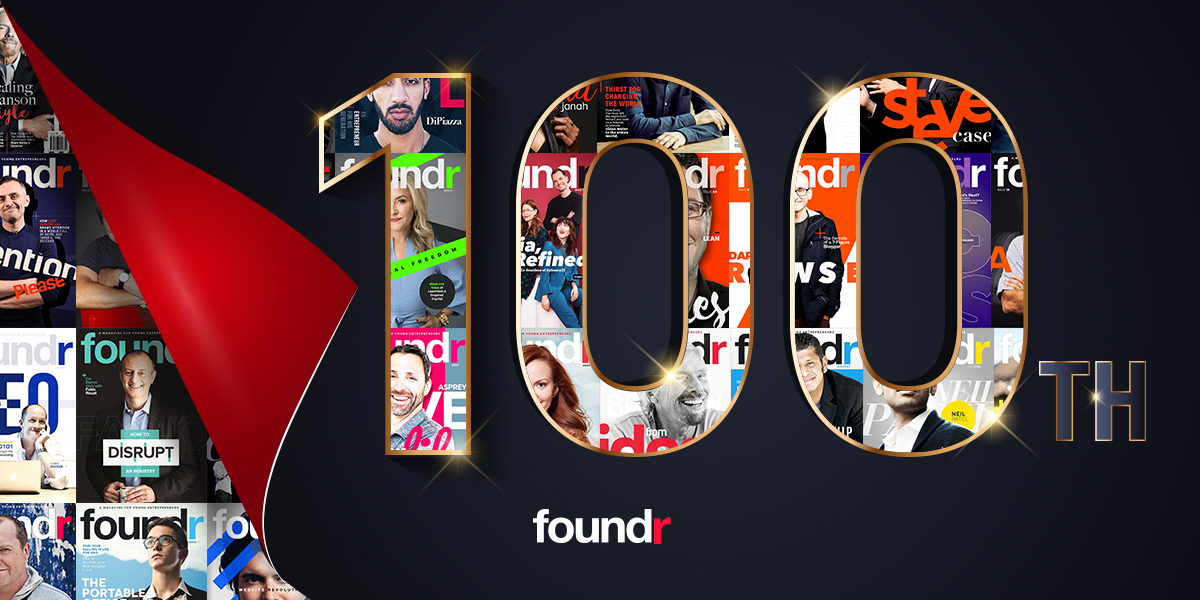
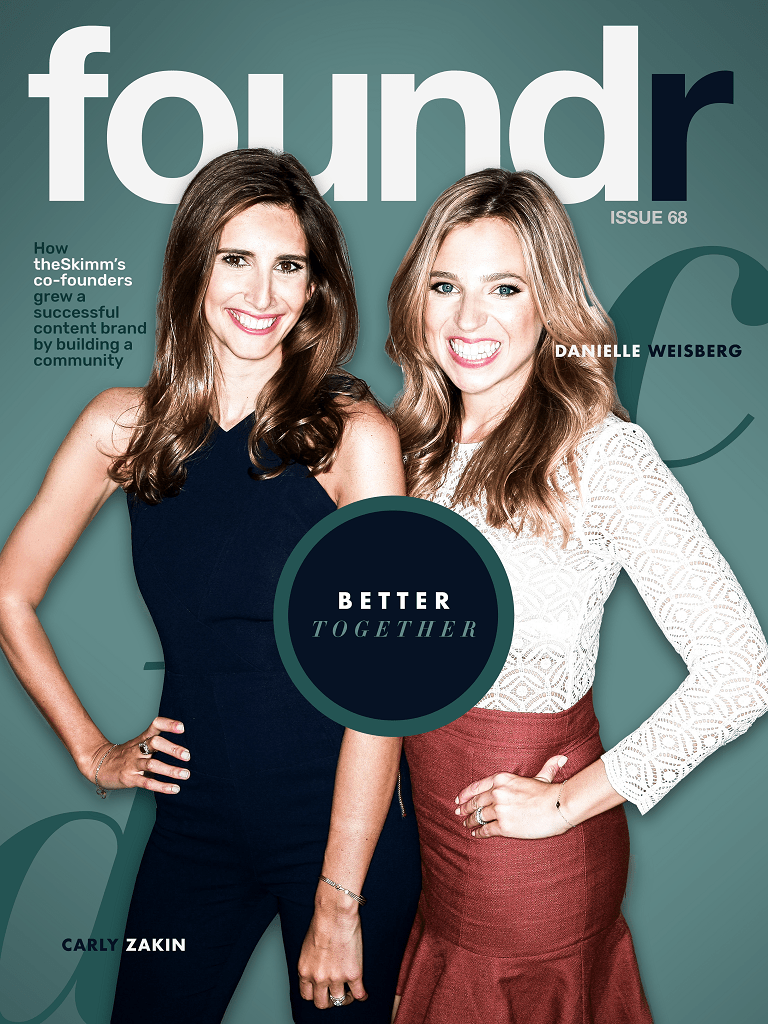 Issue 68: Danielle Weisberg & Carly Zakin, Co-founders of theSkimm
Issue 68: Danielle Weisberg & Carly Zakin, Co-founders of theSkimm
